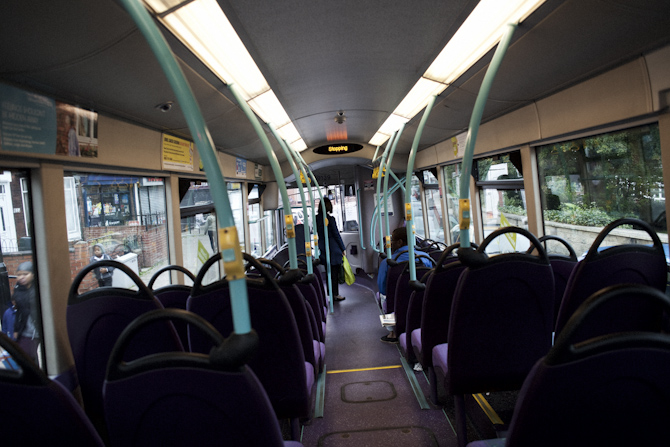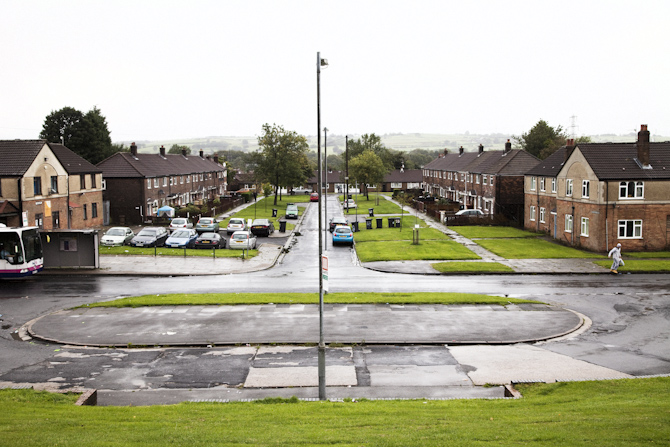A certain type of person
It’s barely 9.30 and already three of the eight computers in the front room are occupied. This morning it’s a drop-in. Sign in and you can sit in front of one of the PCs, upload a CV, check email or keep up on Facebook.
“It’s usually busier than this,” says Carl as he points out the tea bags in the tidy kitchen. “The kids aren’t back at school yet so there won’t be so many in today. Yes, just help yourself to any of that milk.”
After a quick orientation – downstairs there are only a couple of small offices as well as the computer room, kitchen and toilet – I spend the morning talking first to Carl and then Rosanne, the UCAN’s front line staff. It takes a certain type of person to do this work and I’m intrigued to hear what motivates them.
“There is no greater job satisfaction than being able to help people with their problems,” says Carl. “This job is all about building trust. We take the time to build relationships and then we can really help. We genuinely do care and people know that.
“But it’s about listening too. We have to empower customers to find their own solutions. We give them the tools to do things for themselves.”
“So give me an example,” I say, “what has been the most rewarding ‘case’ you’ve taken on?”
Carl thinks for a moment. “A few months ago there was a lot of anti-social behaviour right outside here… people drinking… the police constantly called out. One of the group, a woman in her 40s, was been manipulated by the others who would often end up in her house, not always with her permission.
“Many different agencies were involved in tackling this problem – the police, our housing team as well as our anti-social behaviour team – and I was helping the woman with one-to-one support.
“She wanted to move and so I worked closely with her and with our housing colleagues to find more suitable accommodation in another part of town. A lot of work went into that because of her multiple issues.”
“And if you hadn’t been here, on the doorstep and available every day,” I ask, “who else would have helped her?”
“I don’t think there would have been anyone,” says Carl. “Other agencies might have done some of what we did but wouldn’t have spent the time and built up that level of trust.”
In between helping a steady stream of customers using the PCs, Rosanne joins me in one of the small offices. “What’s so special about this place?” I ask her.
“We take the time to get to know people without scaring them off,” she says. “People are very nervous about coming in for the first time, they think it’s very official. But there’s no reception desk, we’re very approachable, and they soon realise it’s a nice, warm pleasant atmosphere.
“People rarely come in with a single issue. Some have bigger challenges than others. But if we can start by helping them with one thing, maybe just using the phone to sort out a bill, then we can get to know them and help with other things too. It’s a case of slowly unpicking.”
As we talk the front door is flung open. “My sister’s dead!” says a middle-aged woman in a leather jacket, walking quickly across the front room. “I need to use the phone!”
Carl steps forward. “Who do you need to call?” he asks, calmly.
“I’m very upset, I’m next of kin and I can’t get hold of anyone.”
He beckons her into the small office. “Would you like to close the door?” I hear him say.
“Some people come in and do what they need to do and move on,” continues Rosanne, unfazed by the interruption by the woman who is apparently a regular user of this UCAN. “Others keep going in a circle, accessing one service after another. It all depends what they want.”
The door is open again. “Can I use the phone to call Income Support,” asks another regular customer.
“Yes,” says Rosanne. “Just sign in please, Michael.”
“You seem to be a very calm person,” I say. “Are there times when you get frustrated?”
“Very rarely,” Rosanne replies, with one eye on the front door. “It takes a lot to push my buttons to be honest. I’m very placid most of the time.”


